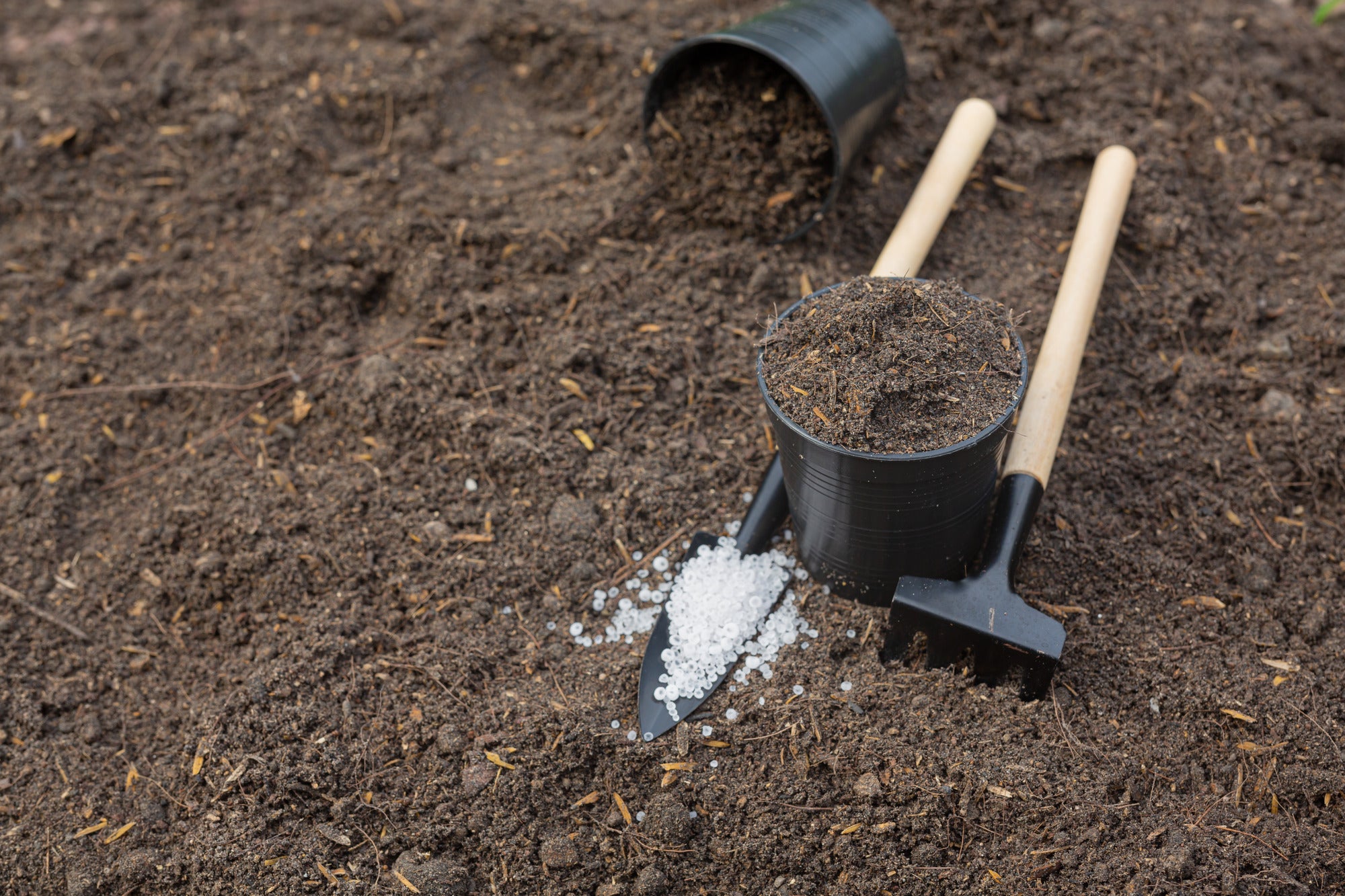Plant Food for Thought: A Guide to Fertilization
- by Leah Hiller
-

Did you know that plants actually need 17 (yes, really!) essential nutrients to thrive, 14 of which come from the soil? This is especially important to keep in mind for your houseplants that live in pots. Plantee’s experts can help you transform the tedious task of plant fertilization with this go-to guide on how to feed your leafy friends just the right amount of food.
Let’s dive in and discover everything you need to know about feeding your plants the right amount, type, and frequency of nutrients to help them grow tall and strong.
What Does Over or Under Fertilizing Look Like?

Over fertilization might sound crazy, but yes, it really is possible to give your plant too much plant food. In fact, too many nutrients can be just as harmful to your houseplants as too few. But how do you know if your plants need more nutrients or less?
If you’re the lucky owner of a Plantee smart indoor greenhouse, you can easily monitor your soil's nutrient levels and keep your plants healthy in the mobile app. But don't worry if you don't have a Plantee yet - there are still plenty of ways to show your indoor plants some love and provide them with the nourishment they need.
Here are some signs that your plants are under fertilized and in need of some sustenance:
- leaf changes
- insufficient nitrogen often yellows older, lower leaves
- low phosphorus can cause leaves to have red or purple tint
- too little potassium can cause leaves to have “burnt edges” on older, lower leaves
- a calcium deficiency can cause “tip burn” on young leaves
- stunted growth, slow development, and poor root development
- weak stems or branches
- poor fruit or flower production
- leaf drop
Over fertilizing can look eerily similar to under fertilization or even other plant problems such as underwatering (learn more about the signs of underwatering here), so it’s important to correctly diagnose your plant’s trouble before taking corrective action.
Over fertilization can be indicated by:
- leaf changes such as yellowing, burnt edges
- stunted growth
- too much green growth
- excess nitrogen can cause too much leafy growth and consequently delay flowering and fruiting
- wilting
- leaf drop
- fungal growth
Types of Plant Fertilizer

When it comes to plant fertilization, we have two main options: organic and inorganic fertilizers. While you might assume that organic is always the best fertilizer for the health of your plants, the truth is that both types have their own unique benefits to offer.
Organic fertilizers are made from natural plant, animal, or mineral sources like compost, manure, bone meal, blood meal, fish emulsion, and seaweed extract.
Organic fertilizers are:
Inorganic fertilizers, also known as synthetic or chemical fertilizers, are made from minerals or synthetic chemicals. Some common minerals used in inorganic fertilizers include nitrogen, phosphorus, and potassium.
Inorganic fertilizers are:
- young plants love it
- plants grow more fruits and vegetables
Ultimately, the choice between organic and inorganic fertilizers will depend on your plant's specific needs and your personal preferences.
How Much Food Does Your Plant Need?
While fertilizer is essential for healthy plant growth, it's crucial to get the balance right. Over-fertilization can be just as damaging to your plants as under-fertilization. Over-fertilizing can cause a buildup of salts in the soil, which can damage the roots and inhibit the plant's ability to take up nutrients.
Before adding fertilizer, always check the instructions on the bottle and ensure that you're using the correct amount. It's better to under-fertilize than to over-fertilize, so it’s best to err on the side of caution.

Master Plant Fertilization with Plantee
If solving the puzzle of plant fertilization still isn’t your cup of tea, why not try Plantee?
With its integrated soil monitoring system, you'll get a soil health profile delivered right to your phone, making it easy as pie to determine when and how to add fertilizer to make your plant thrive. Because Plantee is a smart indoor greenhouse, it can even analyze your soil and suggest the best plant profile for optimal growth. Treat yourself and your plants by getting your own Plantee today!




